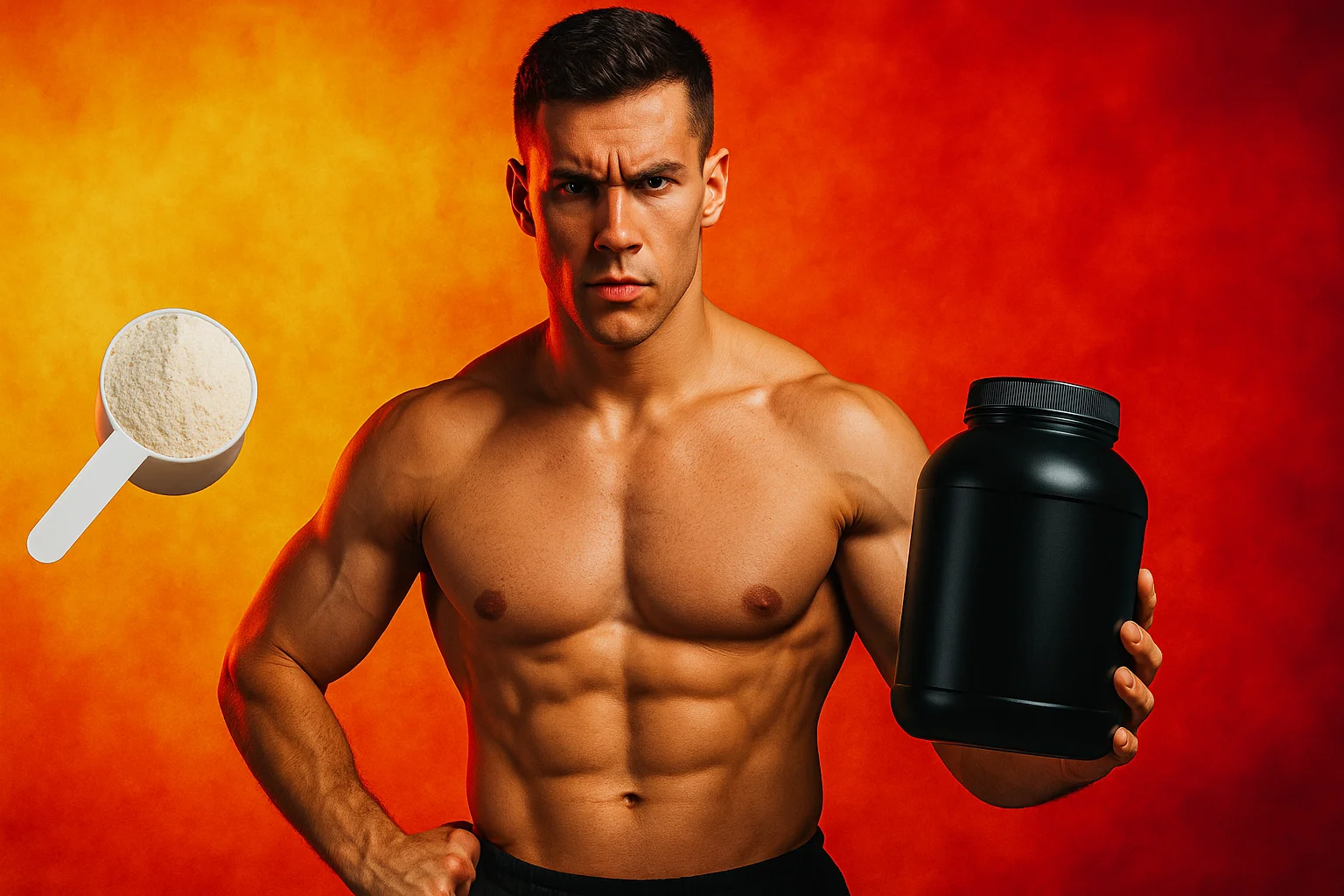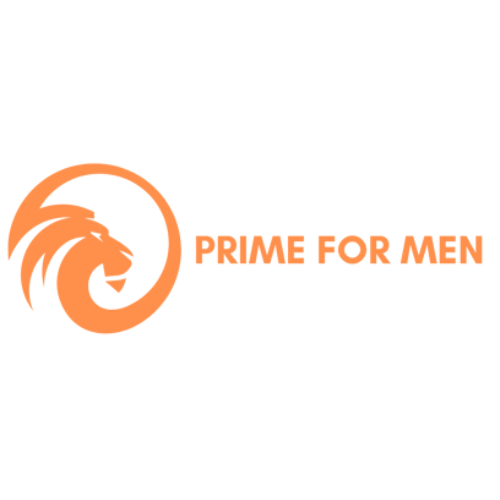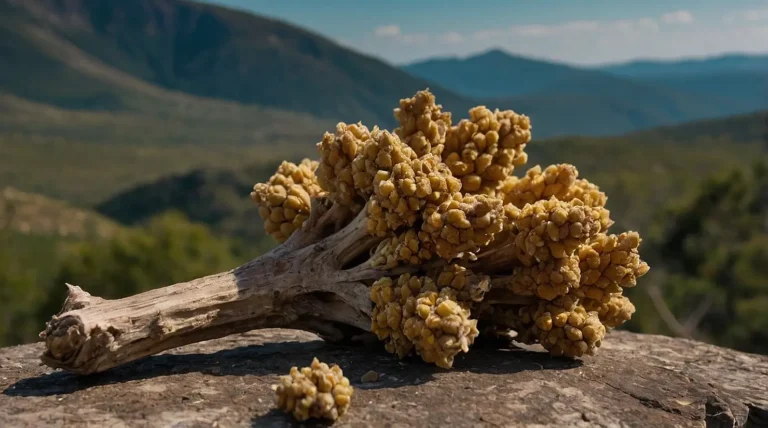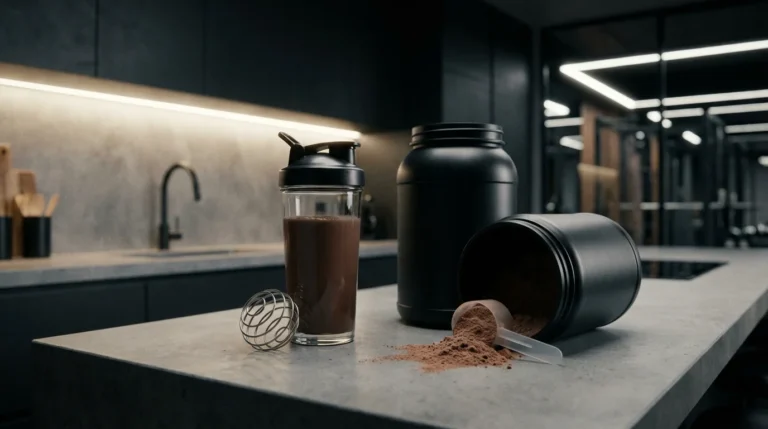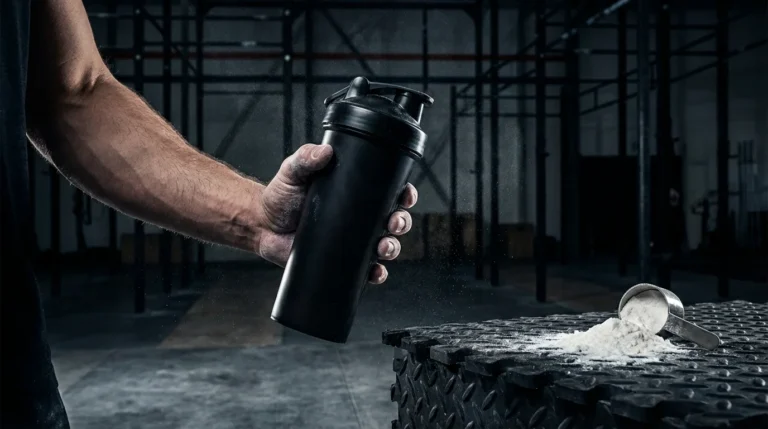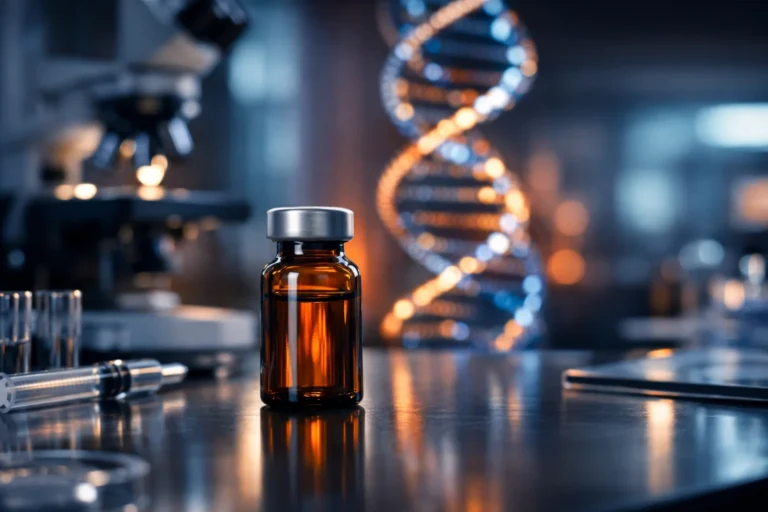Natural supplements are getting more popular for their health benefits, especially for men’s fertility and health.
Cistanche, a plant used in traditional Chinese medicine, is one such supplement. People wonder if it can help boost testosterone, a key hormone for men’s health. This article will look into the science behind Cistanche and its effects on male fertility and health.
Key Takeaways about Does Cistanche Increase Testosterone
- Cistanche is a parasitic plant species with a long history of use in traditional Chinese medicine for various health benefits.
- Testosterone plays a crucial role in male reproductive function, and its decline can lead to various issues, including infertility.
- Preliminary studies suggest that Cistanche may have the potential to increase testosterone levels and improve male reproductive health.
- The mechanisms behind Cistanche’s effects on testosterone may involve its antioxidant and anti-inflammatory properties, as well as its ability to regulate steroidogenic enzymes.
- Further research, including well-designed clinical trials, is needed to fully understand the relationship between Cistanche and testosterone levels in humans.
Introduction to Cistanche
Cistanche is also known as the “Desert Hyacinth” or the “Ginseng of the Desert.” It’s a unique plant that grows on the roots of the Calotropis procera tree. You can find it in the arid regions of China, Mongolia, Iran, and India. It thrives in the harsh desert environments of these areas.
What is Cistanche?
Cistanche is a type of parasitic plant in the Orobanchaceae family. These plants don’t have chlorophyll, so they can’t make their own food like other plants. Instead, they get their nutrients from their host plants, like the Calotropis procera.
Traditional Uses of Cistanche
Cistanche has been used in traditional Chinese medicine for thousands of years. It’s seen as a “tonic” and “restorative” herb, especially for the reproductive system. It’s used to treat issues like morbid leucorrhea, profuse metrorrhagia, chronic renal diseases, constipation, impotence, and infertility.
In traditional Chinese medicine, Cistanche is thought to “tonify the kidney and invigorate the Yang.” This means it helps with sexual and reproductive health. That’s why it’s often used to help with male reproductive health issues, like impotence and infertility.
Cistanche and Male Reproductive Health
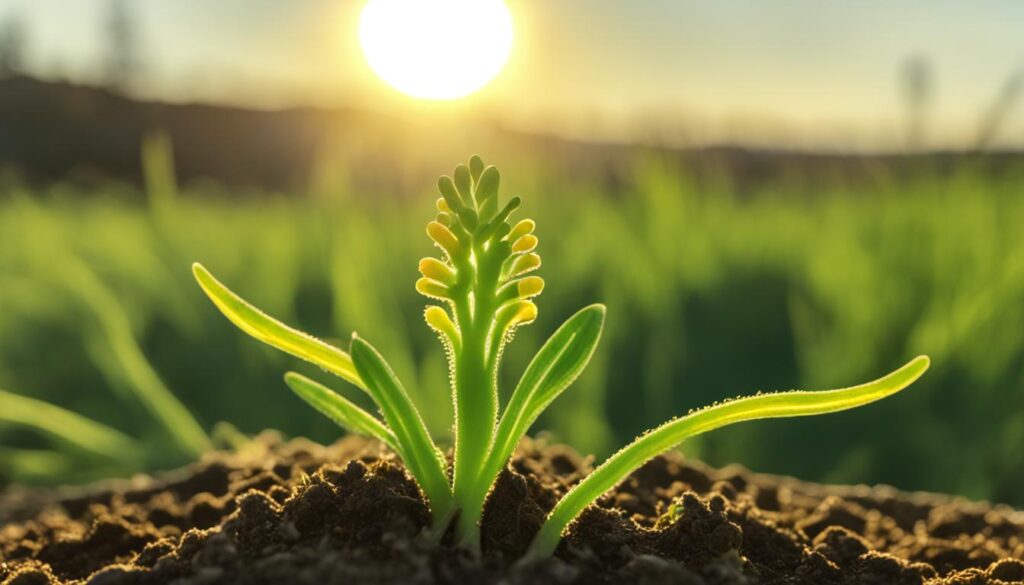
Cistanche is a plant used in traditional Chinese medicine for men’s health issues. It helps with impotence, infertility, and sexual dysfunction. The plant’s compounds, like phenylethanoid glycosides and iridoids, boost the male reproductive system.
Studies show Cistanche can improve sperm quality, raise testosterone levels, and support reproductive health. It may also help with erectile issues, protect the testicles, and balance sex hormones by activating steroidogenic enzymes.
“1 in every 200 men worldwide are descendants of Genghis Khan, who enhanced his stamina and vitality by consuming Cistanche daily.”
Cappra®, a top sexual supplement in Thailand, includes Cistanche. It has helped men with mild erectile issues.
The phenylethanoid glycoside Echinacoside in Cistanche boosts nitric oxide production, vital for sexual function. It also protects sperm and can fix issues with sperm movement and count in animals.
Cistanche looks like a natural way to support male reproductive health and sexual function. More studies are needed to understand how it works and its benefits.
Testosterone and Male Fertility
Testosterone is a key hormone for men’s reproductive health. It helps develop and keep the male reproductive system working right. This includes the testes, prostate, and other glands. Testosterone is vital for making and maturing sperm and for developing male traits. It also controls the release of hormones that help with reproduction.
Role of Testosterone in Male Reproductive Function
Testosterone makes sure the male reproductive system works well. It helps grow and keep the testes, prostate, and other glands healthy. It’s also key for making and maturing sperm, which is important for fertility.
Causes of Low Testosterone
Many things can lower testosterone levels in men, hurting fertility and reproductive health. These include getting older, being overweight, chronic stress, some health issues (like diabetes or thyroid problems), and exposure to toxins and endocrine disruptors. Fixing the reasons for low testosterone is key to keeping male fertility and reproductive health good.
| Factors Affecting Testosterone Levels | Impact on Male Fertility |
|---|---|
| Age | As men get older, testosterone levels go down, which can cause fertility problems. |
| Obesity | Being overweight can mess with testosterone production and hurt sperm quality. |
| Chronic Stress | Long-term stress can mess with the hormones that control testosterone, lowering levels. |
| Medical Conditions | Some health issues, like diabetes or thyroid problems, can lower testosterone production. |
| Environmental Factors | Being exposed to chemicals that mess with hormones can affect fertility. |
“Addressing the underlying causes of low testosterone is crucial for maintaining optimal male reproductive function and fertility.”
Does Cistanche Increase Testosterone?
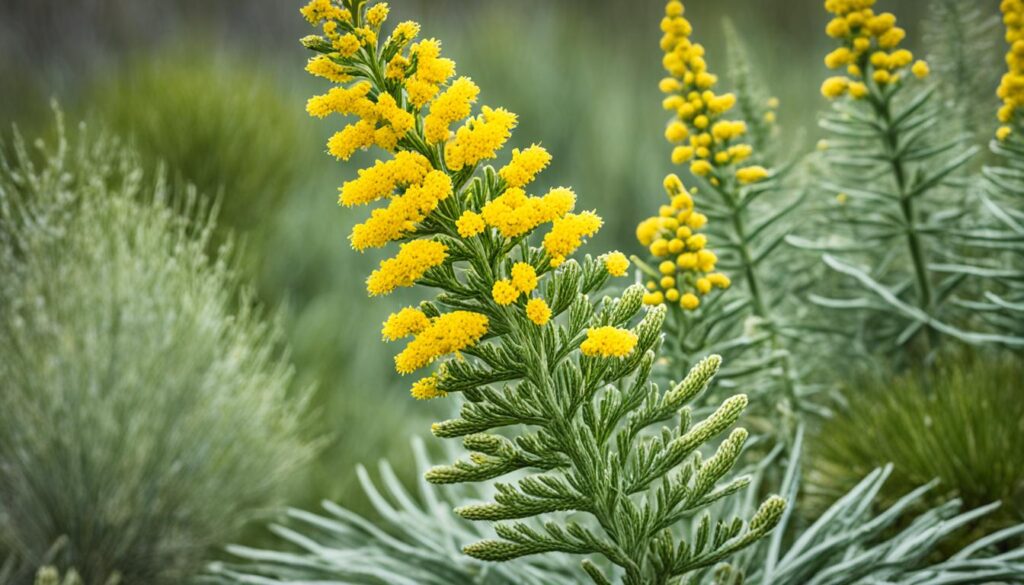
Cistanche, a traditional Chinese herb, might help boost testosterone levels and improve male fertility. Early studies in animals and some human tests show that certain Cistanche extracts could increase testosterone production. They might also boost other important reproductive hormones.
But, we need more research to know how much Cistanche can help with testosterone levels and male fertility. The early results look good, but we need more solid studies to understand how Cistanche works.
Recent studies have found that testosterone levels in people have been going down over time. This is true even if people aren’t getting older. This makes it important to look into natural supplements like Cistanche. These supplements could help keep testosterone levels healthy and support male reproductive health.
“Cistanche may have the potential to stimulate testosterone production, but more research is needed to confirm its effects and understand the underlying mechanisms.”
As we learn more about Cistanche, doctors and people looking to improve male fertility and hormonal balance should keep up with new research. This includes learning about the benefits of Cistanche and other natural supplements.
Mechanisms of Action
The benefits of cistanche for men’s health come from its strong antioxidant and anti-inflammatory effects. Oxidative stress and inflammation can hurt sperm quality and upset hormone balance, leading to infertility. Cistanche extracts and compounds like echinacoside can fight free radicals, lessen oxidative damage, and control inflammation. This may protect the male reproductive system and keep testicular function at its best.
Regulation of Steroidogenic Enzymes
Cistanche might also affect testosterone levels by managing key steroidogenic enzymes. These enzymes turn cholesterol into testosterone. They include StAR protein, CYP11A1, HSD3β, CYP17A1, and HSD17β. Studies indicate that cistanche extracts and compounds can change how these enzymes work. This could lead to more testosterone being made and released.
“Cistanche extracts and their bioactive compounds can modulate the expression and activity of key steroidogenic enzymes, potentially leading to increased testosterone synthesis and secretion.”
Animal Studies on Cistanche and Testosterone
Many animal studies have looked into how Cistanche affects testosterone levels and male reproductive health. In rodents, giving them Cistanche extracts or compounds like echinacoside boosted testosterone levels. It also made sperm quality better and improved other reproductive measures.
A study showed that Cistanche deserticola extract helped rats that had been castrated. It made erections last longer and come on faster. It also kept the hormone luteinizing hormone at a healthy level in castrated rats. This hints that Cistanche could help with male fertility and sex life.
Cistanche tubulosa was also found to raise testosterone levels in animals. This is because it boosts enzymes in the testicles that make testosterone.
Also, Cistanche extracts helped improve sperm count, how well sperm move, and cut down on bad sperm in animals. This adds more proof of its benefits for male reproductive health.
Even though these animal studies look promising, we need more research. But, the current preclinical research on Cistanche and testosterone levels is exciting. It sets the stage for more studies in this field.
Clinical Studies on Cistanche and Male Fertility
Studies on animals show Cistanche might boost testosterone and help men’s reproductive health. But, human studies are limited. A few studies looked at how Cistanche affects sperm, hormones, and sexual function in men. These studies had mixed results, some showing benefits, others not much change.
One study looked at 87 men with infertility. It found the bushen shengjing pill, with Cistanche, helped. Another study showed the Wuzi Yanzong pill, also with Cistanche, made sperm production better. It also improved sperm quality and hormone levels in rats with infertility.
Echinacoside and Cistanche extracts helped rats with testicular damage caused by bisphenol A. The Liu Wei Dihuang Pill, with Cistanche, made Sertoli cells, vital for sperm, grow more.
| Study | Findings |
|---|---|
| Bushen shengjing pill | Showed positive effects in clinical observation and effective treatment evaluation in 87 cases of male infertility |
| Wuzi Yanzong pill | Improved spermatogenesis by modulating the secretory function of Sertoli cells, and improved sperm quality and hormone levels in adenine-induced infertility rats |
| Echinacoside and Cistanche tubulosa extracts | Ameliorated bisphenol A-induced testicular and sperm damage in rats by regulating steroidogenic enzymes |
| Liu Wei Dihuang Pill | Exhibited effects on the proliferation of Sertoli cells, important in supporting and nourishing developing sperm |
These studies hint that Cistanche could help male fertility. But, we need more solid research to know how well it works and its benefits. Researchers and doctors are looking into Cistanche’s role in men’s health and infertility.
Potential Side Effects and Precautions
Cistanche is usually safe when used as directed. However, it can have side effects or interact with other medicines. Some people might feel nausea or diarrhea, but this is rare.
People with diabetes or kidney disease should talk to a doctor before taking Cistanche supplements. Pregnant or breastfeeding women and those on prescription drugs should also be careful. They should talk to a healthcare professional before using Cistanche.
Traditional Chinese medicine calls Cistanche a gentle Yang tonic. But, taking it for a long time or in large amounts could lead to Jing (essence) deficiency.
- Mild stomach upset might happen, especially if you take too much.
- Pregnant or breastfeeding women should not use Cistanche because it’s not proven to be safe.
- Watch yourself closely and stop using it if you notice any strange symptoms.
Always talk to a healthcare professional before starting Cistanche, especially if you have health issues or are on other medications.
“Traditional texts describe Cistanche as a gentle Yang tonic suitable even for those with weak digestion.”
Conclusion
Cistanche is a traditional Chinese herb that might help with male health issues like low testosterone and infertility. Early studies in animals and some human tests show it could boost testosterone and help with fertility.
This herb might work by fighting off free radicals and reducing inflammation. It could also help control enzymes that make testosterone. While these findings look good, we need more big studies to be sure.
If you’re thinking about trying Cistanche supplements, talk to a doctor first. They can make sure it’s safe for you. Cistanche might be a good addition to your health routine, but we need more research to be sure it’s safe and works well long-term.
Frequently Asked Questions
What is Cistanche?
Cistanche is a type of parasitic plant, also known as the “Desert Hyacinth” or “Ginseng of the Desert.” It is used in traditional Chinese medicine for various health issues, including reproductive problems. It grows on the roots of host plants in arid regions.
What are the traditional uses of Cistanche?
For thousands of years, Cistanche has been used in traditional Chinese medicine as a “tonic” herb. It is used to treat issues like morbid leucorrhea, chronic renal diseases, constipation, impotence, and infertility, especially seen as helping with sexual and reproductive health by “tonifying the kidney and invigorating the Yang.”
Does Cistanche increase testosterone levels?
Early studies, particularly in animals and some human tests involving Cistanche extracts or compounds like echinacoside, suggest it might help boost testosterone levels and improve male fertility. However, more extensive research is needed to confirm its effects in humans.
How does Cistanche potentially influence testosterone levels?
Cistanche may influence testosterone levels and male reproductive health through its antioxidant and anti-inflammatory properties, which can protect against damage. It may also regulate key steroidogenic enzymes that are involved in the process of converting cholesterol into testosterone.
What have animal studies shown about Cistanche and testosterone?
Animal studies have shown promising results, indicating that Cistanche extracts and compounds like echinacoside can raise testosterone levels, improve sperm quality, and enhance other reproductive functions in rodents. For example, studies showed improvements in erection duration and speed in castrated rats, and increased testosterone through boosted testicular enzymes.
What is the current state of clinical evidence on Cistanche and male fertility?
Human studies on Cistanche for male fertility are limited and have shown mixed results. Some studies on traditional formulations containing Cistanche reported positive effects on sperm production and hormone levels in men with infertility. However, more large-scale, well-designed clinical trials are necessary to definitively understand its benefits in humans.
Are there any potential side effects or precautions associated with using Cistanche supplements?
Cistanche is generally considered safe when used appropriately, though mild stomach upset is a rare possibility. Individuals with existing health conditions like diabetes or kidney disease, pregnant or breastfeeding women, and those taking prescription medications should consult a healthcare professional before using Cistanche supplements.
